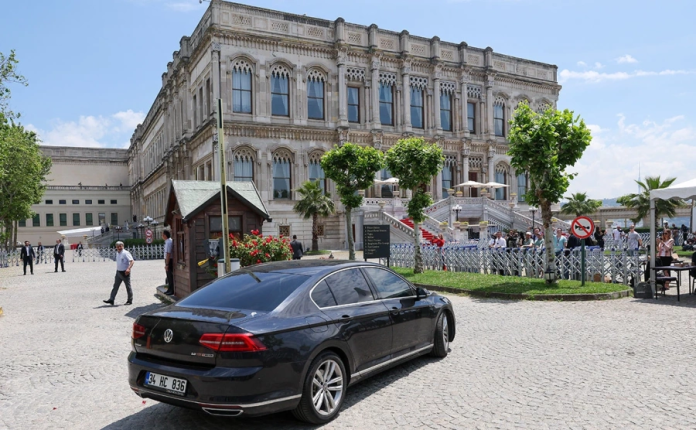Diplomatic efforts to address the ongoing conflict between Russia and Ukraine enter a critical phase on Wednesday, 23 July, as delegations from both nations prepare for the third round of negotiations in Istanbul.
The meeting is scheduled for 7 p.m. Moscow time (4 p.m. GMT) at the Çırağan Palace Kempinski, a luxury waterfront venue on the shores of the Bosphorus that previously hosted discussions in June.
Both sides arrive with unchanged negotiating teams. The Ukrainian delegation will again be led by Rustem Umerov, Secretary of the National Security and Defence Council. His team includes representatives from Ukrainian intelligence, the Ministry of Foreign Affairs, and the President’s Office.
Russia’s delegation remains under the leadership of Vladimir Medinsky, an aide to President Vladimir Putin, supported by Deputy Foreign Minister Mikhail Galuzin, Deputy Defence Minister Alexander Fomin, and Chief of the Main Directorate of the Russian General Staff Igor Kostyukov.
Memoranda of Russia and Ukraine
Ukraine’s President Volodymyr Zelensky publicly defined Ukraine’s non-negotiable priorities: the return of prisoners, the return of children allegedly “abducted by Russia”, and preparing a meeting of leaders. Conversely, the Kremlin’s position, articulated by spokesman Dmitry Peskov, centres on discussing the draft memorandums exchanged during the second round of talks on 2 June.
The Ukrainian memorandum, delivered in May, demands a comprehensive 30-day ceasefire, a complete “all for all” prisoner exchange, international security guarantees, mechanisms to prevent future hostilities, recognition of Ukraine’s territorial integrity within internationally recognised borders, and a meeting between Zelensky and Putin.
Russia’s counter-proposal, handed over in June, presents conditions Kyiv deems an unacceptable ultimatum. The memorandum requires Ukraine to recognise Russia’s control over Crimea and territories in the Donetsk, Luhansk, Kherson and Zaporizhzhia regions; withdraw its military from these areas; enshrine neutrality in its constitution with a legal ban on NATO membership; accept limits on its armed forces size; dissolve specific military units; grant the Russian language official status; and lift all sanctions against Russia.
Negotiations under external pressure
The meeting occurs against a backdrop of sustained battlefield conflict and heightened geopolitical pressure. US President Donald Trump recently issued a 50-day ultimatum, threatening 100% tariffs on Russian goods and secondary sanctions against nations buying Russian oil unless a ceasefire is achieved.
Simultaneously, Trump announced a new multi-billion-dollar scheme for NATO allies to purchase US weapons for onward shipment to Ukraine. The Kremlin described Trump’s statements as “very serious,” requiring time for analysis, while reiterating its stance that arms shipments “hinder settlement” and constitute “playing with fire” by directly involving NATO in the war.
Previous rounds in Istanbul on 16 May and 2 June yielded limited results, primarily focused on prisoner exchanges and the return of soldiers’ bodies. While these humanitarian steps were acknowledged as progress, they fell far short of addressing the war’s core political and territorial disputes.
